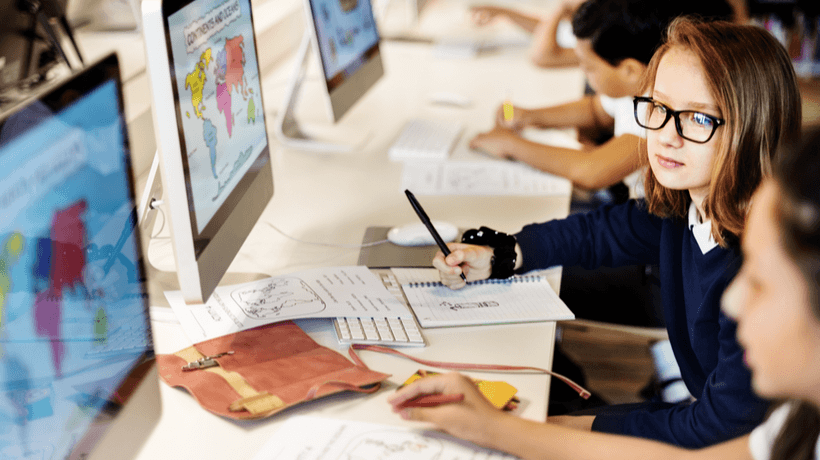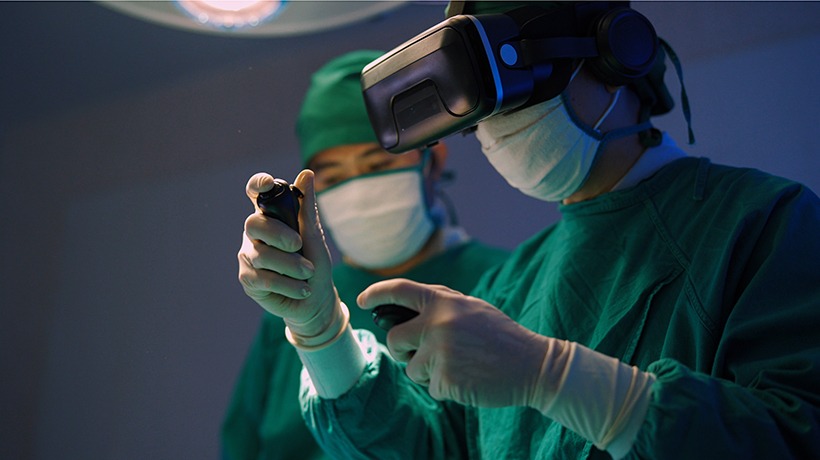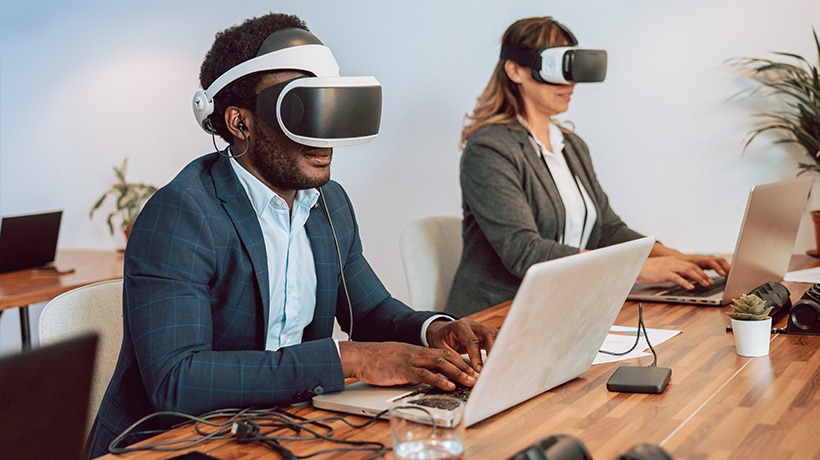Learning And Technology: The Student Experience
We may think that all students are happy having technology as their learning companion. Britain, together with Chile, spends more time on screens compared to other nations (Sage & Matteucci, 2019). In a study of 100 students at the University of Leicester, 3 spent 14 hours daily on devices—watching sport in bed for half the night! (Sage, 2000). No wonder teachers complain about class yawners! However, parents are now aware of negative issues and provide rules about technology use, so most students know the downsides of devices. This is necessary to regularly reinforce, as schools report that even primary students are on social media accessing questionable content (Sage & Matteucci, 2019).
An American study (Lepp et al, 2015) looked at mobile phone use for learning. Participating anonymously, students identified drawbacks:
- Disruption
- Cheating
- Ringtone distractions
- Cyberbullying
- Inappropriate content
- Sexting
- Decline in writing competencies
However, they recognized benefits that included:
- Creativity
- Motivation
- Productivity
- Improved attendance
- Increased engagement
Although there was a high level of support for phone use in classes/lectures, around 1/3 of students felt phones should be banned, but 90% said that they used them for course work.
A Swedish study (Olofsson et al, 2020) reported that cell phones were both useful tools but also annoying distractions. Therefore, the aim is to maximize the benefits of classroom technology and minimize barriers to learning. Studies are useful for becoming aware of the technology used for learning, as well as to reflect on and refine class experiences to improve performance.
Students from primary, secondary, and tertiary education were asked how they best learned and how technology helps studies. Answers are reported with names and some details changed.
Ellie: Age 9 Years At A Village Primary School In Mid England
I learn best with mum and dad at home. At school, I have to do things that are difficult for me. The teachers do not know my problems. I do badly and my friends do better than me. This makes me feel stupid! I do good things when they mean something and I understand the reason for knowing about them. Mum had me tested by a lady and my ability to work out things that I could see was really, really good. My problem is putting words together. I get in a muddle listening to teachers talking non-stop. My dad told me that brains grow at different rates and mine is slow like his at my age. He said that he had trouble at school but his mum fought to get help. He told me we have a seeing brain on the right side and a hearing brain on the left side and sometimes they don’t like talking with each other or take time to learn how to do so. He is a doctor, so there’s hope for me yet. My family always supports and keeps me going.
My worst things at school are spelling and math. If we have to do exercises on the iPad, I sometimes ask what the instructions mean. Others in the class are afraid to do this and muck about to avoid doing the work! I find videos good as they are moving and tell a story that I can see and then follow. I do not like screen tasks that are mostly words. I am not on WhatsApp yet, as my parents think it is not good for me. My brother, who is 13, uses a WhatsApp group to discuss homework and says it is a good way to swap ideas with friends. He is always texting his friends and my parents check this! They do not like us spending all our time on screens and make sure we do sports and other things. I play the violin and go to Beavers, so I can do real things, like cooking and forest tracking. I am a good dancer and often perform at concerts in our community.
Comment: Ellie is aware she has learning issues but seems adjusted to these and has home support. As 85% of what we learn is outside formal classrooms, this is crucial for progress. As Ellie knows about her problem areas she is in a position to manage learning that works.
Manish: Age 15 Years At A London Secondary School
I am afraid of new things, so was worried about using technology in lessons when moving to secondary school. My parents are not tech-savvy, but the school was good and provided iPads for those of us who did not own them. The school has had a big technology drive, so I have learned about apps that keep me interested. These make the lessons more fun. A favorite one of mine is Nearpod. This is a shared presentation and assessment tool and quite easy to use. You can create presentations like PowerPoint and include quizzes, polls, videos, images, drawing boards, and web content. The presentation is interactive and shared with others in the class on their devices. The teachers like it because they can import material they already have or use one of the many lessons available on the website for a change. Slideshows are more fun with polls, quizzes, virtual reality trips (such as to the Egyptian pyramids!), drawing boards, fill-in-the-blank questions, web content, and 3D objects—good for biology lessons.
We follow lessons on screens and answer questions, so take an active part. When we answer questions, the teachers can see them and help with things not understood. They sometimes share model answers on our devices, which help us with what to aim for.
My preferred learning is from seeing things and my friends are similar. One problem with lectures is that teachers talk for a long time, often too fast for some of us who do not speak English as a first language. Some teachers have strong accents, which makes it a problem to understand and they use unfamiliar words. Technology improves visual presentations and gives me a clue on how to take notes or arrange the information. Things like pictures, diagrams, and film are slotted into lesson text. This makes an impact with visual examples of the topic. An advantage of things like PowerPoint is that drawings and diagrams, which are a big part of my science course, are better in color and clearer than board sketches.
One big problem is that teachers go through things like PowerPoint presentations quickly, as they have to get through a lot in lessons so slides vanish before points get noted. When recordings are available online, we can refer to them again in our own time. This takes off pressure, so I can concentrate on looking at slides and listening to the teacher and not bother about taking notes, which can be done later. We have a quiz after each lesson, which makes us think about what has been understood.
Problems do arise from using technology, as bugs are frequent. Sometimes, the pictures wobble or do not show up and the screen freezes. The picture and sound may not match. On the whole, the teachers are good at sorting out problems, so they do not hold up lessons.
I don’t think that all teachers should use technology in lessons, as we learn when information is clear and easily understood. It helps to repeat content differently, which teachers are good at doing. As we do not learn in the same way, new technologies have tools to help us all. Technology connects the teacher, lesson, and students in ways that can suit everyone. Most of us do not cope well when having to listen to a teacher just talking for all of the lessons. Technology can motivate us if we are aware of how best to use it and take the trouble to learn.
Comment: Manish has a good grasp of his learning preferences and takes his lessons seriously. He makes a strong point about the repetition of material in different ways and the importance of interaction between teachers and learners.
Luca: Age 18 Years And In The Last Year Of A Secondary School In A North England City
I learn best by seeing things presented in different ways and then going over them again in my own time, as well as discussing issues with friends. I don’t think I would learn well if I had to listen to an audio of someone droning on and on about something in a boring voice. This is what gets me about normal lessons. Some teachers sweep in, deliver the topic, give the homework, and then rush out to the next lesson. Visual information keeps me interested and helps me to remember things better, as I can picture them in my head.
Technology is a cool learning aid. Not only does it help the teacher and students communicate knowledge and ideas in new, interesting ways, but it allows us to access the information later when it suits us. For example, a group plans and presents a PowerPoint presentation and the teacher streams it from the subject website, which we can access at home. This is a good way to reinforce lessons, without needing more teacher time and resources. Also, new technologies appeal to us younger ones, as we are into them in a big way. Look at the number of cell phones, iPads, and laptops that students now have. This makes technology easy in class because the teacher does not have to tell us how to use it. As many own devices (phones/iPads) fewer class ones are needed. School only has to provide devices if not available at home. This shows how learning is improved by new technology use.
As indicated earlier, learning is an exchange between everyone in a class. Teachers and students must interact to get the most out of an experience. Technology helps the move into the future digital world. The jobs we go into will demand tech skills. There are downsides, as technology can let you down, but we cope with this and know the infrastructure will get better.
Comment: Luca is sold on technology and appreciates the versatility and variety it brings to learning as he obviously does not warm to the traditional lecture-style approach. He understands the importance of becoming skilled in technology use for later working roles.
Bella: A Second-Year Undergraduate Psychology Student In East Anglia, England
I am a visual-haptic learner, which I found out about in course lectures on cognition. This means I learn best when seeing real things with tasks that apply new knowledge and understanding. In this way, I get the best from class experience. I have no problem reading books/articles for information, providing my housemates keep quiet! However, this does not make up for discussion with other students, who broaden and stimulate thinking from their different takes on topics. That is why I need the active involvement of the lecturer and the rest of the group in order to get my head around the subject. I do not wait for this to happen. I begin discussions or continue ones which others have started. The reason that I am so keen about all this is because I know that learning is an exchange of ideas, beliefs, and knowledge, as my studies of psychology illuminate. You only get what others want to give. The way to really learn is to facilitate talk in class. We have a Japanese student, who is brilliant at group talk. He says that in Japan the teachers focus on communication and relationships for effective teamwork in present and future working roles. He understands the rules of group talk and so knows how to apply them to teach us all! Most of us have not learned these in British schools.
I do find technology useful and like the flipped classroom, where you have the material online to study, with questions and tasks to then bring to seminars with tutors. I have had boring lectures to put up with and the move to blended learning suits me fine! However, I do want chances to hear inspiring professors, who have done international research and can put us in touch with what the wider world is doing! This could be done with a short series of key lectures at the beginning or end of the term. We have a great WhatsApp group going with psychology second years and this keeps us in contact, as many of us are scattered over the city now that we have left campus halls of residence. I think the flipped class has kept us going during the 2020 pandemic. Even the simulated lab work has been useful, although I must say the real is best, as I like to touch things and feel them in space (haptic sense). There are problems with technology, like when the screen freezes and the audio disappears. Sometimes it is difficult to enter Zoom events and download materials when the internet speed is low. Nothing is perfect and one has to get on with things and cope with difficulties.
However, one thing that bothers me and that is the popularity of internet essay mills*, where you buy your assignments and theses for a price. I know of students who do this and get away with it. Although my parents did not go to university, I have an uncle who did and is now a lecturer. He thinks standards have gone down, which is not surprising as many more are now entering higher education. Universities are big businesses and this mentality may affect quality. There is good staff, but we are also taught by those who lack the experience and research knowledge that my uncle has acquired and so do not have much to offer us.
Comment: Bella is a keen, active student who appreciates real experience to help her learn best. She sees the flexible benefits of online learning and is a fan of the flipped classroom, which seems to suit many students. Her ability to cope with technology let-downs means she is a good model to follow!
Michael: A Post-Graduate Student At A South England University
My research subject is andragogy—the art and science of adult learning. My mother is a Further Education lecturer, teaching many foreign students learning in English, which is not their first language. I have heard about the challenges of their formal educational experiences. Therefore, it is interesting to work out how I learn, as no one has made me aware of this in my own education, even though I am a qualified mainstream science teacher! As a post-graduate student in my thirties, I value continual professional development opportunities. I have always been a seeker and achiever. I question. I investigate. I get on with things. I am inquisitive, and questions inspire and motivate me to go on learning. The best teachers have pushed me to pursue my passions while providing support when needed. I have found the higher education journey a huge test of independence, willpower, and stamina!
Technology has been a blessing and a curse for me. Fortunately, I took a tech course last year, which has improved my confidence and skills. I found that I couldn’t ruin my computer unless in a fit of temper I threw it out of the window! Now, I’m happy to try out things. A course learning contract kept us up to the mark. We all had to learn a new technology or improve a skill. People produced websites, instructional programs, video conferences, and digital photography, as well as created PowerPoints with sound and movement for presentations. Choice of these possibilities in the contract was good to suit our wide interests.
We have learned to create online curricula and use a chat room for discussions about articles and required readings. Group exchanges were paperless except for project handouts. It was a good experience for reluctant and eager tech learners alike! Technology gives many opportunities to explore, create, and cooperate. I see an increase in communication and confidence among course mates on the tech course, which should be a must for everyone.
Tutors are often frustrated with technology, as the tools do not always work properly and the ongoing training received is erratic or non-existent. I was in tech hell when my research presentation went wrong and the screen continually froze! Luckily, it has not affected the assessment, as the tutor assured us that dealing with problems calmly is what matters. Machines fail just like humans! However, it puts one off stride, but others were willing to help. Technology is constantly changing and differs in each setting. Patience and willingness to learn allow technology to extend the world for students at every level.
However, technology has dangers for academics, as not all online information is correct and fake news is constantly bandied around. Also, some students are inclined to cheat, buying assignments and theses from website essay mills*. There are academics willing to write these for large fees. The media reported this in March 2019. Professors were compiling theses for students, charging over £6,000, according to journalists. This service is easy to find on the web and should be stopped*. Someone I heard about bought an essay for £60, saying he could earn more than that in an evening working at a city bar, so saving time for socializing!
I like the idea of research being more practice-based within the workplace to broaden the knowledge of colleagues for real impact on progress. As I am investigating my own learning, recording this, and then comparing my journey with other adult students, I feel that outcomes will be worthwhile for everyone. I understand Harvard University now focuses on Ph.D. research degrees and practitioner doctorates, which are global developments. These are not as popular in the UK because some think investigations within practice are not credible research. This is not my view as you have gathered! I think a personal record for assessment is more useful to take back into the workplace and share with colleagues. It is difficult to cheat with this method, so must be a favored online assessment.
Comment: Michael is a "goer" and determination has helped him succeed. He has a love-hate relationship with technology because of its unreliability but is able to cope with this. The learning contract is a sound idea to encourage the use of technology for creative purposes and is one that all courses should adopt as mandatory. Michael’s research topic has led him to support practice-based inquiries for impact on workplaces.
Review
Polarized views of classroom technology are common. Some think they distract and result in lower performance. Others suggest the learning experience is improved and banning technology prevents student progress, especially for those with specific needs. Many views are based on anecdotes and not scientific data. Recommendations are based on research regarding how students process, retain, and retrieve information.
When students use cell phones in class, their performance might be less. Psychologists explain this as multitasking and divided experience. Students believe they can attend to many things at once, but this can harm the user and other classmates (Lepp et al, 2015).
Students do better on tests when taking written notes rather than relying on laptop records (Mueller & Oppenheimer, 2014). It is not a question of distraction in these studies, but the computer process that harms learning. Taking hand notes is slower and so difficult to keep up with the pace of speech. Students must interpret quickly and think actively about information received, which depends on retention and recall. Some students prefer laptop records and only reread these for exams, but unless followed by written notes to deepen thinking, this is less effective. Also, hand movements for writing help ideas to form and flow, seen in the COGS studies (Sage, 2020). However, students with writing problems benefit from processing and producing work on the computer, so should be allowed to do so.
Effective Technology Use
Limits and strengths of classroom technology must be acknowledged. Studies show that multimedia-sensory learning increases retention-recall processes. This occurs when learners encode visual, auditory, and haptic information into memory, as when they listen to a topic presentation (auditory), then watch a display (visual) before carrying out practical tasks (haptic) to implement understanding. Studies show the efficiency of this mode (Langer-Crame et al. JISC, 2019).
There are cognitive benefits to using certain technological aids, especially quiz tools. Quizlet, an online app, can improve study strategies and retention-recall of material. It allows students to make flashcards, view those of other students, and use gamification for courses. The app also enables self-testing, determining how and what to study through meta-cognition. (167—Students’ perspective and experience on higher education—YouTube)
Technology enhances other goals as well. Students do not always check teacher emails! It may be possible to text them, although staff might not want to disclose phone numbers. However, I have found texting a helpful way of keeping in touch with tutees. Apps, like Google Voice, work without revealing personal codes. These tools are multi-purpose, enabling a dialogue on course content or notification of changes.
Recommendations From How The World Is Changing Education (Sage & Matteucci, 2021)
Technology can produce effective learning but must fulfill ethical educational goals:
- Ensure devices in class minimize distraction using solutions that suit students and context;
- Deliver multifaceted, multi-modal learning, enabling students to use all sense modalities if possible (hearing, sight, feeling, smell, taste) and explain technology pros and cons;
- Invest in an e-reader (£50+) for texts if possible. This device reads eBooks and is like a computer tablet, but without a screen. It uses electronic paper, reflecting light like the normal type, but is easier to read with a wider viewing angle. Electronic paper is a portable, reusable store and display medium, looking like paper but can be written on repeatedly. The e-reader downloads eBooks from a computer or reads them from a memory card to hear how they sound and assist in changing the writing style for student needs. Thus, this technology is adaptable for many purposes and useful for those with specific needs; and,
- Use captions for showing videos to help process information for inclusive learning. Captions help gain attention, with a longer viewing time for the message, vital for students with word processing problems. They make the content perform better on search engines.
Although it might seem tedious to set up tech systems, they are easily updated for reuse. Tools are constantly changing so ongoing training for everyone is a priority, but not regularly available in many institutions (Chatterton, 2021).
The 5 students were brave to talk about learning and are impressive for awareness and acceptance of events. Their views are echoed in the 2020 student webinars of OECD, EDEN, TOP HAT, and World Rankings. The overall opinion suggests that blended learning is the future, as people must be tech-savvy for jobs, with its tools providing flexibility and choice. However, the downsides must be addressed, such as unreliable infrastructure, easy access to unsuitable materials, and opportunities to cheat and pass courses without engagement. A strong view has been expressed that assessment must change to become a personal online record that can be updated for a job passport. Employers are aware of dubious practices and prioritize job seekers from institutions with ethical practices and now offer positions to non-graduates showing high-level personal and practical competencies.
In 2012, the UK laws were relaxed, allowing non-qualified teachers to be employed in schools. Although bringing valuable life experience, it is vital that unqualified staff have an understanding of psycho-linguistic learning processes. Education is a complex business in a diverse society. It is common for around 250 different languages and dialects to be spoken by students in UK city schools. Therefore, the linguistic content of computer programs must be of concern for ensuring learners can access the content successfully.
Finally, a quote from Bill Gates, the software billionaire, on Huffington Post: "Technology is just a tool in terms of getting the kids working together and motivating them, the teacher is the most important." If wisely implemented, technology improves engagement, knowledge retention, individual learning, and collaboration, with innovation and inequality the defining global and educational issues of the 2020s.
This article is Part 2 of a two-part series, read Part 1.
*Note:
Chris Skidmore brought the Essay Mills Prohibition Bill to the British Parliament on 10 February 2020. An ex-university lecturer reported: "My latter years of lecturing were blighted by constant attempts by students to hoodwink me into believing that the work they had submitted was a true reflection of their ability… year after year they purchased essays by companies that promised excellent grades." (Daily Telegraph: No More Essay Mills, p.19, 10.02.2021). The first reading of the bill is available on hansard.parliament.uk.
References:
- Boninger, F., Molnar, A., & Saldana, C. (2019) Personalized User Learning and the Digital Privatization of Curriculum and Teaching. University of Colorado. NEPC
- Chatterton, P. (2021 in press). Chapter 17, The Rise and Rise of Digital Learning in HE. In R. Sage & R. Matteucci (Eds). How World Events are Changing Education
- Iskandar, A, Muhammad Rizal , M., Kurniasih, N., Utami Sutiksno, D., & Agung Purnomo, A. (2018) The Effects of Multimedia Learning on Students Achievement in Terms of Cognitive Test Results. WMA-Mathcomtech 2018 IOP Publishing IOP Conf. Series: Journal of Physics: Conf. Series 1114 (2018) 012019 doi 10.1088/1742-6596/1114/1/012019Newman, T.,
- Langer-Crame, M., Newman, T., Beetham, H., Killen, C. & Knight, S. (2019) Digital Experience Insight Survey - Finding from Studies in Further and Higher Education. JISC
- Lepp, A.,Barkley, , J.,Karpinski, , A. (2015) The Relationship Between Cell Phone Use and Academic Performance in a Sample of U.S. College Students. SAGE
- Matteucci, R. (2019) What is Technology? In The Robots of Here: Learning to live with them. Ed. R. Sage & R. Matteucci. Buckingham: UBP
- Molner, A., Miron, G., Elgeberi, N., Barbour, M., Huerta, L., Rankin Shafer, S. & King Rice, J. (2019) Virtual Schools in the U.S. 2019. NEPC
- Mueller,, P. & Oppenheimer, D. (2014) The Pen Is Mightier Than the Keyboard: Advantages of Longhand Over Laptop Note-Taking, in the Psychological Journal
- Sage, L. (2015) Motivational Effects on Attention. Practitioner Report; Plans for Primary & Secondary Schools. Available on line in Pdf. Nuffieldfoundation.org/propjects/motivational-effects-on-attention
- Sage, R. (2000) Class Talk: Successful learning through effective communication. London: Bloomsbury
- Sage, R. (2020) Speechless: Understanding Education. Buckingham: BUP
- Olofsson , A., Fransson, G. & Lindberg. J. (2020) A study of the use of digital technology and its conditions with a view to understanding what ‘adequate digital competence’ may mean in a national policy initiative. Educational Studies, 46:6, 727-743, DOI: 10.1080/03055698.2019.1651694








